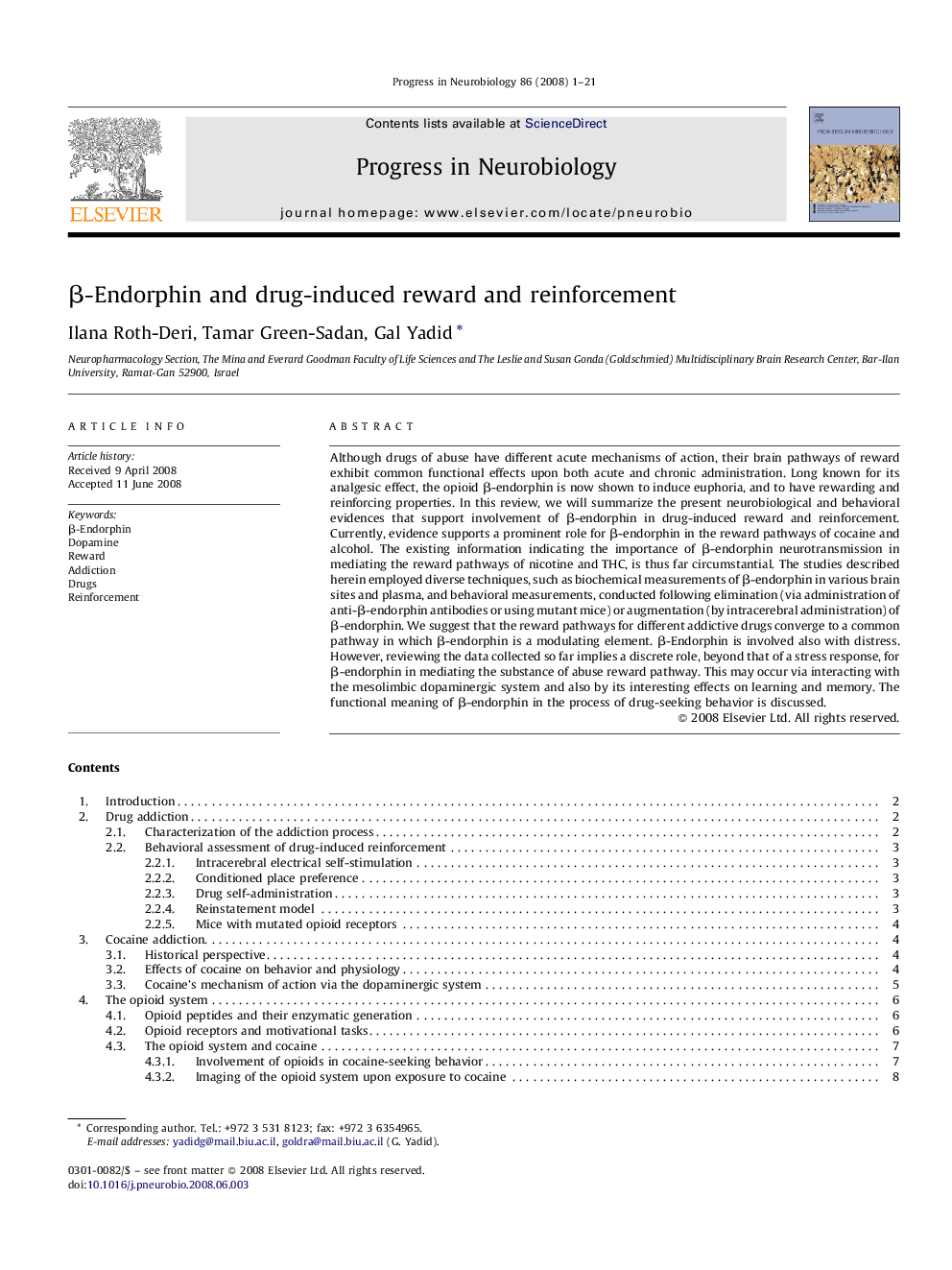| Article ID | Journal | Published Year | Pages | File Type |
|---|---|---|---|---|
| 4353694 | Progress in Neurobiology | 2008 | 21 Pages |
Although drugs of abuse have different acute mechanisms of action, their brain pathways of reward exhibit common functional effects upon both acute and chronic administration. Long known for its analgesic effect, the opioid β-endorphin is now shown to induce euphoria, and to have rewarding and reinforcing properties. In this review, we will summarize the present neurobiological and behavioral evidences that support involvement of β-endorphin in drug-induced reward and reinforcement. Currently, evidence supports a prominent role for β-endorphin in the reward pathways of cocaine and alcohol. The existing information indicating the importance of β-endorphin neurotransmission in mediating the reward pathways of nicotine and THC, is thus far circumstantial. The studies described herein employed diverse techniques, such as biochemical measurements of β-endorphin in various brain sites and plasma, and behavioral measurements, conducted following elimination (via administration of anti-β-endorphin antibodies or using mutant mice) or augmentation (by intracerebral administration) of β-endorphin. We suggest that the reward pathways for different addictive drugs converge to a common pathway in which β-endorphin is a modulating element. β-Endorphin is involved also with distress. However, reviewing the data collected so far implies a discrete role, beyond that of a stress response, for β-endorphin in mediating the substance of abuse reward pathway. This may occur via interacting with the mesolimbic dopaminergic system and also by its interesting effects on learning and memory. The functional meaning of β-endorphin in the process of drug-seeking behavior is discussed.
